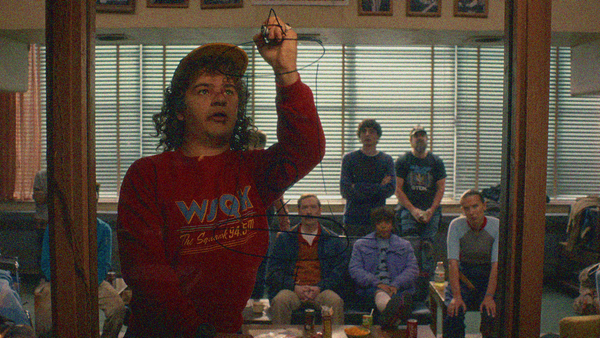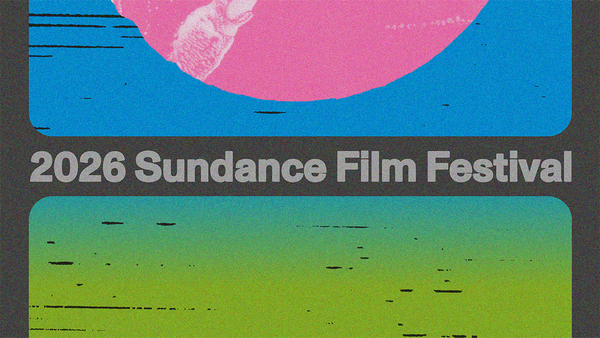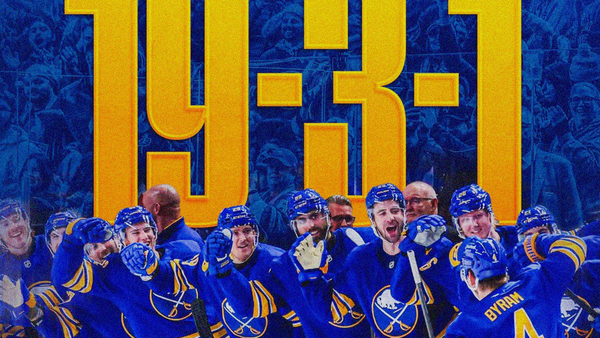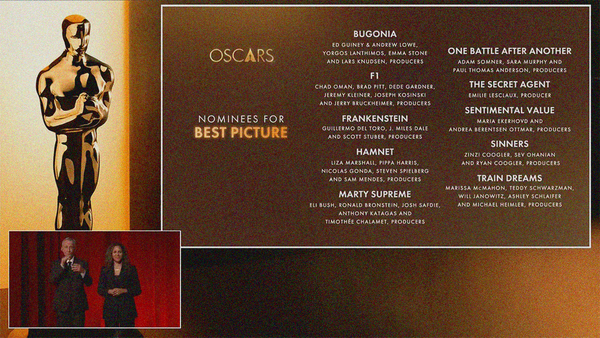Week Ending 4/25/25
The Pineapple Suite
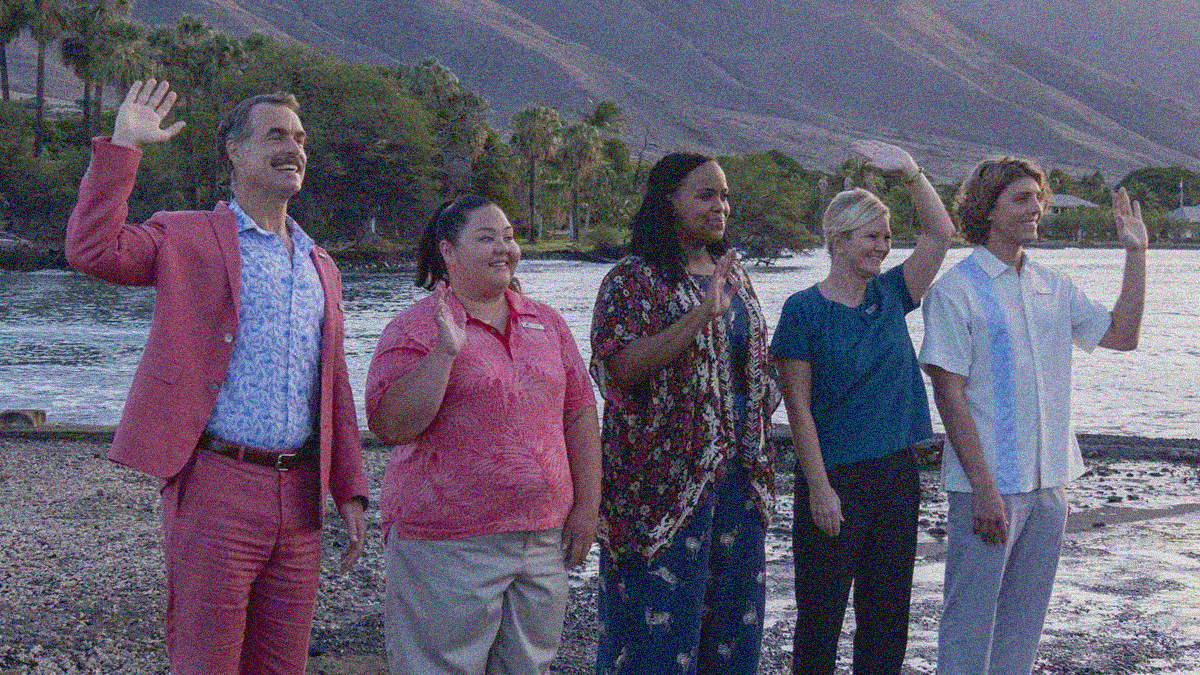
It only took four years, but I finally took a trip to “The White Lotus”.
I love Mike White, but I just didn’t see the appeal of watching yet another rich white satire. So, I skipped it assuming it was a one-off anyway. But then came season two.
I stayed away again—this time because I feel like I didn’t really hear as much about it. Which sounds dumb since it was definitely at the forefront of social media meme culture. It just wasn’t on my feeds. But then came season three.
So, I caved. It doesn’t look like the property is going anywhere, so I resigned myself to taking the plunge to see if the hype was legit. With season one under my belt, it’s looking like it might be.
White’s miniseries isn’t perfect and some of its thematic messaging becomes exploited rather than informative, but it truly is a lot of fun. Jennifer Coolidge is a treasure. Steve Zahn steals most of his scenes. And I think this was Alexandra Daddario’s best work. The real MVP, though? Murray Bartlett.
I’m intrigued to see if season two keeps that ball rolling. Farting Grandpa gives me pause, but the first episode has enough good exposition to hold promise.
What I Watched:

APRIL
(limited release)
There's a deluge of rain showers and multiple vignettes of flowers along the Georgian countryside, but this month of April ultimately delivers mud, violence, and futility. Dea Kulumbegashvili's film doesn't simply pile such things solely onto the head of her lead Nina (Ia Sukhitashvili), though. No, every woman on-screen suffers from them. Even some men who dare allow themselves the progressive thought that science and humanity should come before apathy and control. While the latter can still turn their head and pretend to ignore what's happening, the former cannot. Neither the abuse they fall victim to nor the reality that striving to help feels less fulfilling than it does hopeless.
We meet Nina sitting in her boss's (Merab Ninidze) office to explain what happened during a delivery gone wrong. Also at the table are her OB/GYN colleague David (Kakha Kintsurashvili) and the husband (Sandro Kalandadze) of the patient. He's there under the pretense of wanting to know why his son died five minutes after being born, but he really wants the other men in the room to blame Nina. Not because it was or might be, but because she is a woman and rumored to be conducting illegal abortions down in the nearby village. She's not only "unqualified" to bring life into this world (despite a long career of doing exactly that), but he believes her to also be a murderer. Nothing she says would assuage that fact. Nothing the men say would either.
This is Nina's life: a disrespected caretaker surrounded by toxic men who literally see women as property. She's delivered most of their children and yet she's been marked as the devil by cleaning up their messes while seeking to educate the often very young brides who aren't ready to be mothers on how to postpone conception. And it all must be done in secret. No one can know about the contraception because women are supposed to provide their men as many children as "God sees fit." No one can know about the abortions or most of the pregnancies themselves. It begs the question why the unfortunate mother at the start never registered her condition to receive the support needed to keep her baby safe. Did she even want it?
What intrigues beyond her career are the ways that those who sympathize with what Nina does also try telling her its unnecessary. Some implore her to have her own child as though children are the sole purpose in life. Her independence is seen as a threat; her duty to keep oppressed and raped women alive is less important than keeping her job and freedom. Nina is constantly asked why she's alone because her allies remain indoctrinated regardless of their progressive tendencies. Yes, they are open-minded to the reality that she provides a necessary service, but they are still bogged down by the conservative gender norms driving their traditional values. And the random men she solicits for companionship—since she knows no man would willingly stand-by her choices—are a coin toss on whether they hurt her instead.
It's no wonder Kulumbegashvili splices in nightmarish glimpses of a deformed Nina, naked and devoid of facial features. I was reminded of Alberto Giacometti's sculptures of stretched and rough figures struggling to maintain their humanity under the weight of existential dread. This is how Nina sees herself—a nondescript entity moving through the world as a pariah some of the women she helps even loathe if for no other reason than that her existence reminds them of their pain. She's not allowed a life of her own because it would get in the way of her mission. As she tells David early on, "Besides this job, I have nothing to lose." It's true. The village, however, has everything to lose without her. Tragically, they refuse to admit it aloud.
Shot as a series of static set-ups in full-frame, April proves a masterclass of blocking so each sequence maintains a sense of drama without camera movements. A couple moments include a pan and others (mostly exposition shots) allow motion via handheld, first-person perspective, but the majority of the film dares us to not look away by holding us frozen on uncomfortable conversations (the moment Nina's boss leaves her in the office alone with that grieving husband, we know it won't end well), real-life birthing scenes, and an entire abortion procedure focused only on the bare midriff of the patient with the back of her concerned mother filling the left side and her bent legs going off-screen on the right. Kulumbegashvili ensures we understand the gravity and potential for violence via silent stares of barely concealed trepidation.
While the main through line is discovering whether Nina will lose her job due to the malpractice claim, that danger is the least of our concern once we begin to follow her day-to-day. Maybe an attempt at companionship will leave her bloodied in a ditch. Maybe one of her teenage patients will get caught with birth control pills or an abortion will go wrong and she'll be forced to confirm the rumors—both leading to jail time. And what of the young woman she's been sent for to help by Mzia (Ana Nikolava)? This ordeal both epitomizes why Nina's work is crucial to the survival of her patients and why she's always one mistake away from perhaps getting killed herself. Because we know the answers to the questions Mzia keeps dancing around and that there's zero chance it ends well.
And through it all lies an impressive performance from Sukhitashvili. Between the demand of the long takes and the constant state of fight or flight uncertainty, we find ourselves mesmerized by every movement and expression. Her Nina is risking everything with each act she takes—her job leading to tragedy is enough to put her in the crosshairs of a community desperate to ruin her because she has the gall to be an unmarried, childless, career woman who cares about the wives, sisters, and daughters being fed to the wolves for simply existing. You cannot dismiss its politics as just exposing how rural Georgia treats its women either, not when there are anti-abortion laws being passed in America now too. Anyone still pretending this is a cautionary tale is either delusional or complicit.
- 8/10
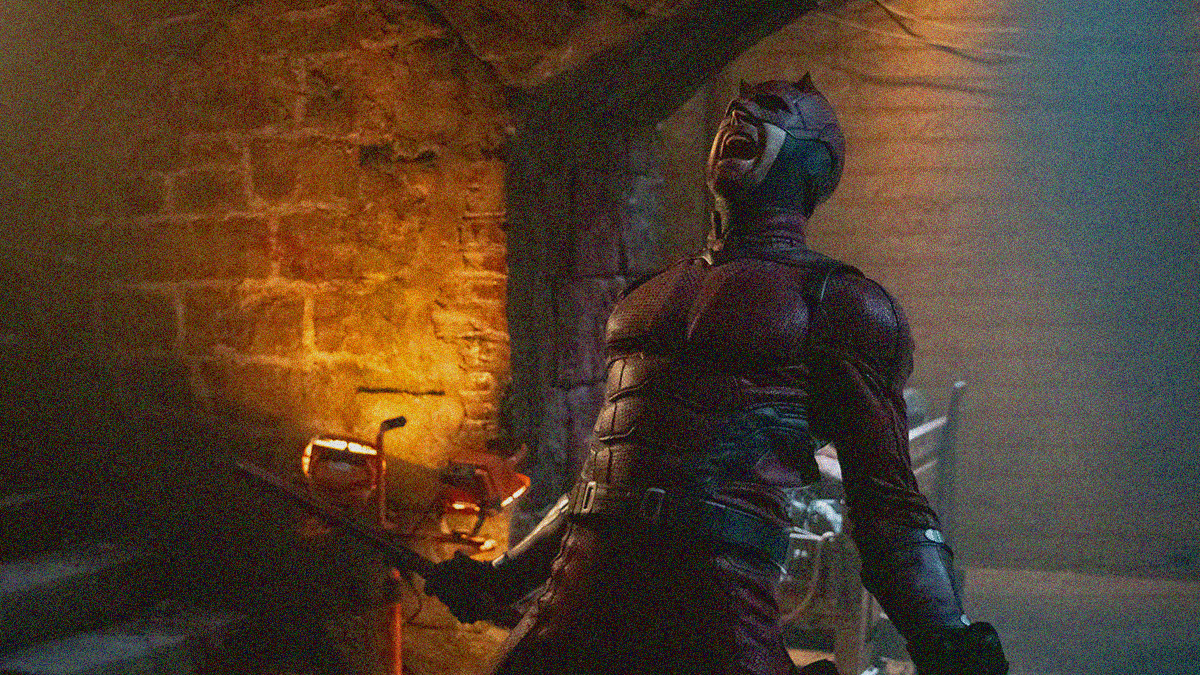
DAREDEVIL: BORN AGAIN – Season One
(streaming on Disney+)
The creation of Disney+ ultimately killed Netflix's "Defenders." There was no way an MCU offshoot (which made mention of events and characters from the film without ever overtly stating details or names) could co-exist with whatever Marvel Studios had planned on their own platform. So, they shut it down before a fourth season of "Daredevil" could advance past the planning stage (cast members were under the impression they would see its five-season arc to fruition). The studio focused on shows featuring their cinematic superheroes instead while waiting the contractually obligated two years before reinserting Charlie Cox's Matt Murdock and Vincent D'Onofrio's Wilson Fisk to the fold.
Fan excitement at seeing them back was palpable, so Kevin Feige knew the potential to give them more than just cameos a la "Hawkeye" and "She-Hulk" was real. Matt Corman and Chris Ord were soon enlisted to steward this new direction via a planned eighteen-episode season that saw Matt retired from the mask and focusing on his new law practice with Kirsten Mcduffie (Nikki M. James). Mention of previous seasons was minimal, the tone was softened, and all involved sought to move forward as though the Netflix iteration didn't exist on Earth-616 after all. Well, despite shooting six episodes, Cox and D'Onofrio approached Feige to admit it wasn't working. He agreed.
So, if the first season of "Daredevil: Born Again" feels weird, it's because its creation was anything but smooth. Corman and Ord were let go (although they rightfully retain creator credit—think Frank Darabont with "The Walking Dead") and replaced by "The Punisher" writer Dario Scardapane. The choice to bring back Karen Page (Deborah Ann Woll), Foggy Nelson (Elden Henson), and Frank Castle (Jon Bernthal apparently was asked to rejoin earlier, but felt the direction they wanted to go with the character did a disservice to his previous work) was made. And "Moon Knight" and "Loki" directors Aaron Moorhead and Justin Benson came aboard to direct a new pilot, penultimate episode, and finale. New footage was also filmed to provide cohesion throughout those original six chapters and this Big Apple-set Frankenstein's monster was born.
I'll say it up front: those new Benson and Moorhead episodes are a completely different beast than the rest. Yes, that's the whole point, but being able to tell puts a damper on things since we're truly just wondering when we'll get back to those stakes again. It's night and day. Daredevil and Matt Murdock. He may don the suit now and then, but he's desperately trying to hold the darkness at bay while doing what he can with suit and tie. It works in isolation (I loved the lighter bottle episode opposite Mohan Kapur's Yusuf Khan entitled "With Interest") and when it helps infer upon his internal struggle (representing the late Kamar de los Reyes' Hector Ayala on a case that hits close to home), but the rest is, for lack of a better term, pedestrian.
Muse (Hunter Doohan) never feels like more than a means to an end as a villain injected by brute force rather than sprinkled in with nuance. Neither does Dr. Heather Glenn (Margarita Levieva) as a love interest who's truly just a pawn to keep Matt and Fisk tangentially connected while their actual plot progressions are miles apart. I like the mirror of those two adversaries fighting to shake off their masks (Daredevil and Kingpin pushing through the façade of lawyer and mayor, respectively) on paper, but the execution leaves a lot to be desired since we know it's a false battle. Matt will always be Daredevil. He must to survive. And, despite what occurs at the end of "Echo" between Fisk and Maya (Alaqua Cox)—left unexplained and forgotten (at worst) or used to prove monsters are byproducts of nature rather than nurture (at best), Wilson is a gangster.
We're ultimately spinning wheels until Wilson Bethel's Bullseye returns to the screen. He's who Scardapane uses to connect us to the past and add intrigue for the present. He becomes the reason Matt puts the mask away and why Daredevil can no longer sit idly by as Wilson and Vanessa (Ayelet Zurer) remake the city's governmental infrastructure in their corrupt image. We tread water through six episodes of exposition that's wholly unnecessary to anyone who watched the original series as far as explaining Matt's Catholic guilt, and hope the payoff is worth the wait. Kapur and de los Reyes are great and both James and Levieva serve their purpose as a two-pronged Foggy and Karen stand-in (for all the talk about "bringing them back," Woll and Henson receive about twenty minutes of screen-time total), but it's Clark Johnson's PI Cherry who stood out most.
Arty Froushan's Buck Cashman, a budget-James Wesley, proves yet again how integral Toby Leonard Moore was to that first "Daredevil" season. Genneya Walton is an interesting addition as Ben Urich's niece BB, serving in much the same role. And Michael Gandolfini is fun as the new youngster for Fisk to take under his political wing while Zabryna Guevara and Michael Gaston look on in horror. Think J.D. Vance as lapdog to Trump while the Liz Cheneys and Charles Schumers of the world still pretend like the actual rule of law exists rather than the my-way-or-the-highway "rule of law" that has replaced it. I don't think the allusions Scardapane makes in the final two episodes of Fisk doing to New York City what Trump has done to America will be lost on anyone.
As for the payoff: I won't deny that those last two chapters deliver more of what I hoped the show would. Is it enough to save what comes before it? Not in any real sense. We can only cross our fingers that it will be enough to save what comes next since the planned eight-episode season two arrives with a blank canvas. Scardapane and, presumably, Moorhead and Benson have the reins now to build off what they turned season one into instead of being hamstrung to work with what was already shot and too expensive to scrap altogether. If they can give us something to truly invest in, it will all have been worth the trouble. Because I love seeing Cox, D'Onofrio, and Bernthal back in costume. It would just be so much better if they had something interesting and unique to do.
Tidbits:Letting the cracked stones have sound effects that overpower the score during the opening credits is a distracting move that undermines what should be a powerfully dramatic sensory experience.The logotype looks like the show is going to be a sitcom in the vein of "Frasier"—an insane choice, but perhaps more aligned with what the original vision would have been.As someone who lived through the 80s and is on home movies singing Jefferson Starship's "We Built This City" with his sister as children, the choice of using that song as a gag in 2025 like it's relevant was wild. Unless it became a meme recently and I didn't know.Great to see Lou Taylor Pucci, albeit in a very small role. The fact that he was the star in Moorhead and Benson's masterpiece Spring makes me believe his part was added by Scardapane to connect Vanessa to their new episodes.
- 5/10

EMERGENT CITY
(limited release)
Everything you need to know about the Trump Administration today comes down to what Industry City CEO Andrew Kimball says towards the end of Kelly Anderson and Jay Arthur Sterrenberg's Emergent City when the approval of his company's rezoning plans start to look less and less likely. Of the many reasons for their eventual decision, the one he singled out to local news channels was the "current political environment." If we interpret that statement as being made in good faith, we simply chalk it up as the face of a billion-dollar private equity conglomerate blaming a democratic state (New York) for hamstringing capitalist progress. What some of us knew then (circa 2020) and most are realizing now, however, entities like Kimball and Industry City only deal in bad faith.
Because "current political environment" isn't actually about republican versus democrat. Not when you're operating from their financial level with the power wielded from it. No, those three words are a euphemism for "democracy." You see it early when Kimball explains how their property is uniquely positioned as a private venture to give the people what they want without bureaucratic red tape, failing to admit (although he knows it all too well) that removing said tape also removes those people from the equation. His hope is to dupe politicians into giving him what he needs to make his shareholders an astronomical windfall without any regard for collateral damage or keeping promises he never guaranteed in writing. If only those politicians didn't rely upon the people to keep their jobs, he might have succeeded.
Enter Elon Musk and DOGE—an unelected hatchet man and his unsanctioned department shingle removing anyone who would dare put the public's interest in front of corporate gains. It's why they want to privatize the post office and defund public institutions like NPR and PBS. It's why they gift governmental positions to compromised individuals that aren't just "yes men," but the very people benefiting financially from decisions in opposition to public consensus (just wait until you see where Kimball ends up). The MAGA sect brainwash their constituents into believing the same government programs that help them are actually corruptively helping "the other" more and therefore must be dismantled. And then, as their home is taken from medical debt, they continue to admire those "businessmen" for exploiting another loophole, refusing to acknowledge that loophole was them.
Everything is about money. That's what private equity is. Status quo and stable profit are never enough. They need more. They need growth. And they will burn down the country to get it and simply move on to the next when the well runs dry. The people know this. The community leaders at the back of Brooklyn's city council vote to let a company already earning close to 100 million dollars in profit a year to make billions instead know this. So, they fight to be heard. They fight to convince Council Member Carlos Menchaca that saying "No" might not get them what they want, but it still leaves the door open for negotiations later. Saying "Yes" only provides a façade of progress at the expense of real change. Because all those jobs that will be created will ultimately go to Manhattan transplants rather than Brooklyn locals. A "Yes" vote isn't for community advancement. It's for gentrification.
It's a complex battle that ultimately comes down to a branding issue. Companies like Industry City (backed by an entity whose name becomes synonymous with Jared Kushner throughout Emergent City's runtime) understand this and use it to their advantage by selling consumers exactly what they wish for today without also explaining how they won't be able to afford its benefits tomorrow. The big problem is educating the public about that disparity—opening their eyes to the propaganda that has taken over their entire existence via media outlets on television and the internet. We are in an era where our very lives are "pay to play" and we're voluntarily pricing ourselves out because too many of us have chosen hate ("I'd rather no one play than let them have a turn") over equality ("Let's all play together").
The access Anderson and Sterrenberg received for ten years is astounding because they get a little of everything. Kimball's smug smile. Antoinette Martinez's hand-shaking anger at organizations positioning themselves as public proxies despite ignoring the public. Menchaca's genuine (naïve) desire to have a dialogue with Industry City and negotiate a compromise. And Industry City's attorney's bald-faced entitlement in the belief these "peasants" can't do anything to stop the machine (knowing that, if they do somehow stop him, he's another Trump presidency away from removing every last accountability check stop from his path). I'd argue this little microcosm of a political debate perfectly illustrates what's happened to America during the twenty-first century. And even in its democratic victory comes the dawning realization that oligarchy already won.
You cannot deny that the informative and compelling footage the filmmakers have compiled is the main driving force here, but I must make note of the expert editing and structural organization of the whole with just the right amount of contextual exposition via newspaper headlines, archival broadcasts, and now-and-then superimpositions of the area in the 1930s, 60s, 00s, and today. Add the realization of what the people do want via one of the remaining state-owned waterfront areas and we even receive a bit of hope that all might not be lost yet. It takes films like this finding an audience and changing minds to keep that hope alive. And, if nothing else, that glimmer gave me a nice reprieve from the freight train that is America's current constitutional crisis.
- 8/10
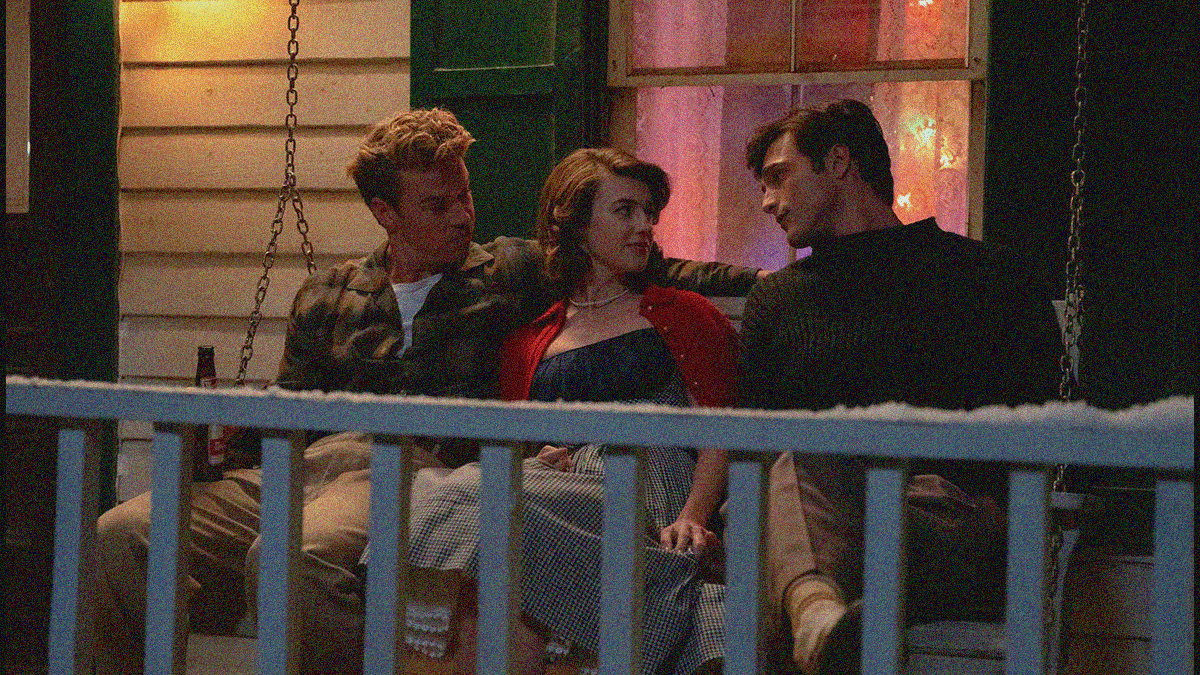
ON SWIFT HORSES
(in theaters)
Lee (Will Poulter) knows exactly what he wants: Everything he didn't have growing up. A quaint little home full of love and family. To give his own children what he always yearned to experience himself. It's the dream he's strived to achieve since before leaving for the Korean War. One he hatched alongside his younger brother Julius (Jacob Elordi) despite knowing his participation was more poetic than guaranteed. It was simply nice to think about and to keep that hope alive. So, when Lee meets Muriel (Daisy Edgar-Jones), he thinks the fantasy might finally become real. Get married, move to San Diego, and gaze upon a future filtered through glasses tinted by a nostalgia he never truly knew.
Daniel Minahan's film, and, presumably Shannon Pufahl's novel (adapted by Bryce Kass) isn't about Lee, though. No, On Swift Horses instead focuses on the two wilder souls he has hitched his dream upon. Muriel is a Kansas girl at heart, but an adventurous risk-taker in spirit. Julius is a charismatic spirit with a romantic heart. She joins in Lee's quest in the belief that Julius will be by their side to instill a bit of excitement. He pretends to still be on-board so he doesn't disappoint them. But neither really wants to put down roots behind the cage of a picket fence. Lee's dream is one steeped in security while their minds wander towards much higher stakes.
Superficially, those stakes come from gambling. Muriel secretly begins playing the horses via eavesdropped tips at the diner where she works. Julius brashly hits the card tables to grift and cheat his way into as many windfalls as beat downs. It's an outlet from their otherwise slow attempts at living the capitalist American dream, but also a placeholder for the risk they're desperate to take in love too. She thinks her gamble is with Julius, but he's less her literal target than its expressionistic mold. It's Gail (Kat Cunning) and Sandra (Sasha Calle) who catch her eye. Just as it's Henry (Diego Calva) who catches his. The question is therefore whether their longing is real or another means of rolling the dice. Because, as Gail soon admits, they're all a hair's breadth away from losing everything.
I enjoyed this complex romantic drama in large part because it didn't rely on Lee for its theatrics. Lesser works would have him try and beat sense into his brother or seek vengeance upon his wife. Here, however, he's the most empathetic and clear-headed character on-screen. Sure, he is hurt by what eventually transpires, but he would never begrudge another human being from the happiness they need to survive. Lee never uses the word "gay" or "homosexual" when speaking about his brother, but we know he knows. We know he loves Julius anyway and merely hopes his brother stays in touch. Because Lee does truly want to cultivate that familial connection he missed. To know his brother will always be there no matter what.
There's compassion and maturity in this reaction even if the era and moment still prevent him from openly accepting Julius as a person rather than a symbol. It's why we worry about Lee's feelings more than his actions when Muriel's extramarital affair escalates. He is the rock and, perhaps, the victim. The one destined to be abandoned because his idealism is too pure to concede that his dream neglects the nuances of a modern world. And it's through his consistency that Edgar-Jones and Elordi are really able to bring the mess and emotionality to characters that are too quick to let themselves down by conforming to the society Lee holds so dear. Because making him happy means sacrificing their own joy. And making themselves happy means risking their freedom.
In the end, all three ultimately choose themselves. It might seem convenient that this decision brings with it understanding and a genuine desire for the others to find what they're looking for even if they can no longer come along for the journey, but I'd argue this outcome is the surprising outlier. Rather than rely on the fireworks of self-pity or lashing out (both Muriel and Julius have their fair share of torment from their secret lives to not need extra from their public ones), Pufahl and Minahan deliver an impressively adult look at our collective struggle to find our place and identity in an ever-changing world. On Swift Horses is in many senses a coming-of-age film for the late-twenty sect in an era where one is supposed to already know who they are.
I won't deny that it moves quickly in some regards, but you must only believe in the love shared to get past the lack of foreplay, per se. I think it speaks to the vulnerability and confusion driving Muriel and Julius that they're able to fall so hard and so fast for others. That sense of home and peace that Lee finds in buying a plot of land to start a family is what those two see in each other and in Sandra and Henry respectively. They're the dream Muriel and Julius aren't sure will come true. Lee is the solid, safe figure in the rearview mirror they've been able to rely upon and, to some extent, use as a crutch to not pursue their own destiny. These are three inextricably bonded souls approaching the realization that their way forward demands they sever that bond first.
- 7/10
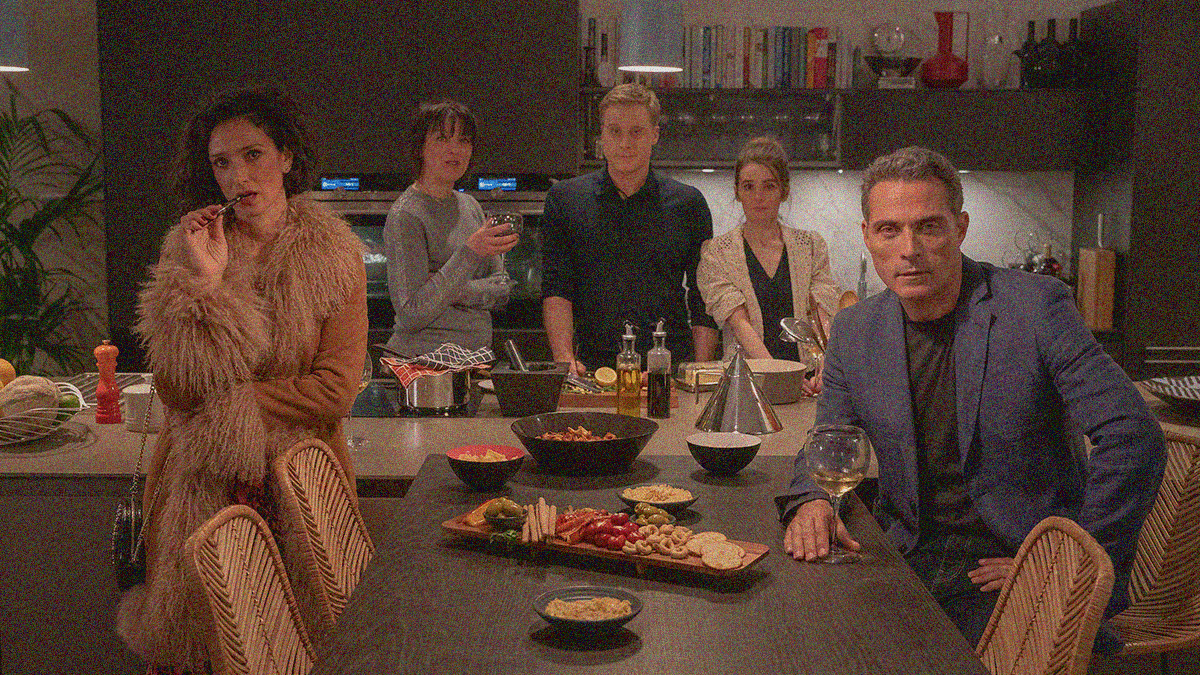
THE TROUBLE WITH JESSICA
(limited release)
Tom (Alan Tudyk) is readying the meal and Sarah (Shirley Henderson) is preparing to host when the phone rings. Richard (Rufus Sewell) and Beth (Olivia Williams) are still on schedule, but they're bringing an extra guest: Jessica (Indira Varma). It shouldn't be a problem because they are all friends—and have been since college. But it is a problem because there's history behind her place as their fifth wheel. Jessica wanted Richard, but he chose Beth. She'd been with Tom (and still flirts with him), but he chose Sarah. The reason is the same thing that makes her so alluring. While an unpredictability and wild nature is something for them to covet and be jealous about, it isn't conducive to sustaining a life.
What this quartet don't realize, however, is that this truth is something Jessica feels too. Whereas they could escape her whirlwind by embracing each other, she is stuck wondering if it was all worth it since the chaos and fun ultimately made way for loneliness and depression. So, in many respects, Jessica envies their comfort and stability too. She doesn't want to always be the screw-up amongst her friends—the ones they look down upon and make faces that she knows means "there she goes again." Suddenly becoming the talk of the town with a best-selling memoir may have helped even the playing field insofar as having something to hang her hat on, but it still isn't enough to satisfy her soul.
Matt Winn's The Trouble with Jessica (co-written by James Handel) is a collision course years in the making, yet still full of secrets and petty rivalries. It's difficult for Sarah to congratulate Jessica on her success when she resents her for always undermining her relationship with Tom. It's impossible for Jessica to pass up an opportunity to call out the hypocrisy of her friends even if it means telling a joke in poorer taste than the one she's commenting on. And, just as her star starts to rise, these two couples are crashing down to Earth. Tom has overextended his finances to the point where selling their home is the only lifeline he has left. And Richard and Sarah are treading water emotionally thanks to their immoral lives becoming a necessity to maintain materialistic pleasures.
Sarah and Beth tell each other everything. Tom and Richard do the same. So, Jessica becomes the odd person out—a burdensome distraction they refuse to either drop from their lives or honestly engage with a desire to truly be her friend. It should therefore come as no surprise that she does what she does nor that she does is in full view of them, knowing they're too self-absorbed to notice. The intent is not to implode their lives in the aftermath because Jessica truly believes they're on solid enough ground to endure her selfish pursuit of not being alone. One would be correct to say she's as much to blame for their strained friendships by not knowing the pain they were all in too (not to mention her role in creating it). The point being: she's not a victim. None of them are.
This is why the black comedy proves so successful. These are all reprehensible people in the vein that we are all reprehensible people. They aren't the ultra-rich (Amber Rose Revah's Ellen and Sylvester Groth's Klaus eventually enter to ensure this fact), but they are wealthy enough to live with a certain privilege that makes them feel invincible until the rug gets pulled from beneath their feet. That means Beth can lambast her husband for defending rapists in court even though she needs him to keep doing it to afford her wigs. Sarah can act like she is righteous when compared to Jessica and then turn around to coldly calculate the ways in which to exploit and manipulate a horrible tragedy to her advantage. These people all know the difference between right and wrong, but none are above moving that line when it suits them.
I don't want to spoil what that tragedy is (I went in blind solely based on the impressive cast without watching a trailer, so it might not be a spoiler at all considering how crucial it is to the narrative), so I'll merely say that Tom, Sarah, Richard, and Beth are thrust into a moral debate about survival. What are they willing to do for their friends? What are they willing to risk for themselves? Are the people in our lives truly indelible pieces or familiar objects to be moved around and discarded when a situation arises that renders them expendable? And how powerful a motivating force is fear in the face of inevitable consequences? Because even those dead set against following Sarah's admittedly callous plan find themselves volunteering their fealty once the moment arises.
Winn and Handel do their best to push each character's hand by parading a revolving door of new "guests" into the equation at the most inopportune moments. First, it's a busybody neighbor (Anne Reid). Then it's a genial pair of policemen (Jonathan Livingstone and David Schaal are a delight when confronted with the ever-present "clafoutis in the room"). Add Revah and Groth for the largest stakes considering what they stand for as both a way out for our leads and a mirror for their misdeeds and there's never a breath in the action. It's arguments, appalled dismay, boiled over frustration, and deer-in-the-headlights silence, rinse and repeat. Will they do what they must or what they should? Will they be able to live with the guilt attached to both options?
- 7/10
Cinematic F-Bombs:
This week saw 10 Years (2012), Big Eyes (2014), Crazy Rich Asians (2018), The Founder (2017), Hot Shots! (1991), Juror #2 (2024), Me and Earl and the Dying Girl (2015), Parkland (2013), Sign ‘o’ the Times (1987), and Wyatt Earp (1994) added to the archive (cinematicfbombs.com).
David Harbour dropping an f-bomb in Parkland.
New Releases This Week:
(Review links where applicable)
Opening Buffalo-area theaters 4/25/25 -
The Accountant 2 at Dipson Amherst, Flix, Capitol; AMC Maple Ridge, Market Arcade; Regal Elmwood, Transit, Galleria, Quaker
Borbaad at Regal Elmwood
Cheech and Chong's Last Movie at Dipson Amherst; Regal Transit, Quaker
Jongli at Regal Elmwood, Transit
The Legend of Ochi at Dipson Flix, Capitol; AMC Market Arcade; Regal Elmwood, Transit, Galleria, Quaker
On Swift Horses at Regal Elmwood, Transit, Galleria, Quaker
Thoughts are above.
Sarangapani Jathakam at Regal Elmwood, Galleria
Star Wars: Episode III - Revenge of the Sith (20th Anniversary) at AMC Maple Ridge, Market Arcade; Regal Elmwood, Transit, Galleria, Quaker
Thudarum at Regal Elmwood
Until Dawn at Dipson Flix, Capitol; AMC Maple Ridge, Market Arcade; Regal Elmwood, Transit, Galleria, Quaker
Streaming from 4/25/25 -
Babygirl – Max on 4/25
“There's an honesty to the sex positive nature of the whole, but also the empathy inherent in the love for another and the love for oneself. [Kidman delivers] an emotionally daring performance.” – Full thoughts at jaredmobarak.com.
Fréwaka – Shudder on 4/25
Havoc – Netflix on 4/25
Jewel Thief - The Heist Begins – Netflix on 4/25
Last Breath – Peacock on 4/25
Ernest Cole: Lost and Found – Hulu on 4/29
The End – Hulu on 4/29
“Shannon and Swinton are the ones doing the heavy emotional lifting by letting the twenty-year-old masks they've forgotten were glued to their faces slip.” – Full thoughts at HHYS.
Exterritorial – Netflix on 4/30
Another Simple Favor – Prime on 5/1
The Biggest Fan – Netflix on 5/1
Now on VOD/Digital HD -
Ash (4/22)
Hell of a Summer (4/22)
Locked (4/22)
“To the correct audience, however, Locked is a pretty accurate depiction of where we are right now. A populace beholden to the whims of an oligarchy setting obvious traps to justify its own violence.” – Full thoughts at HHYS.
Freaky Tales (4/25)
“Oakland’s own Too $hort [narrates] the “facts” while also sprinkling in what he’s “heard” to cut through the speculation and breathe life into Fleck and Boden’s wildly violent homage to an era and area close to their hearts.” – Full thoughts at HHYS.
Mob Cops (4/25)
Neighborhood Watch (4/25)
William Tell (4/25)
Winter Spring Summer or Fall (4/25)
Thanks for reading Hey, have you seen ...?! Subscribe for free to receive new posts and support my work.

